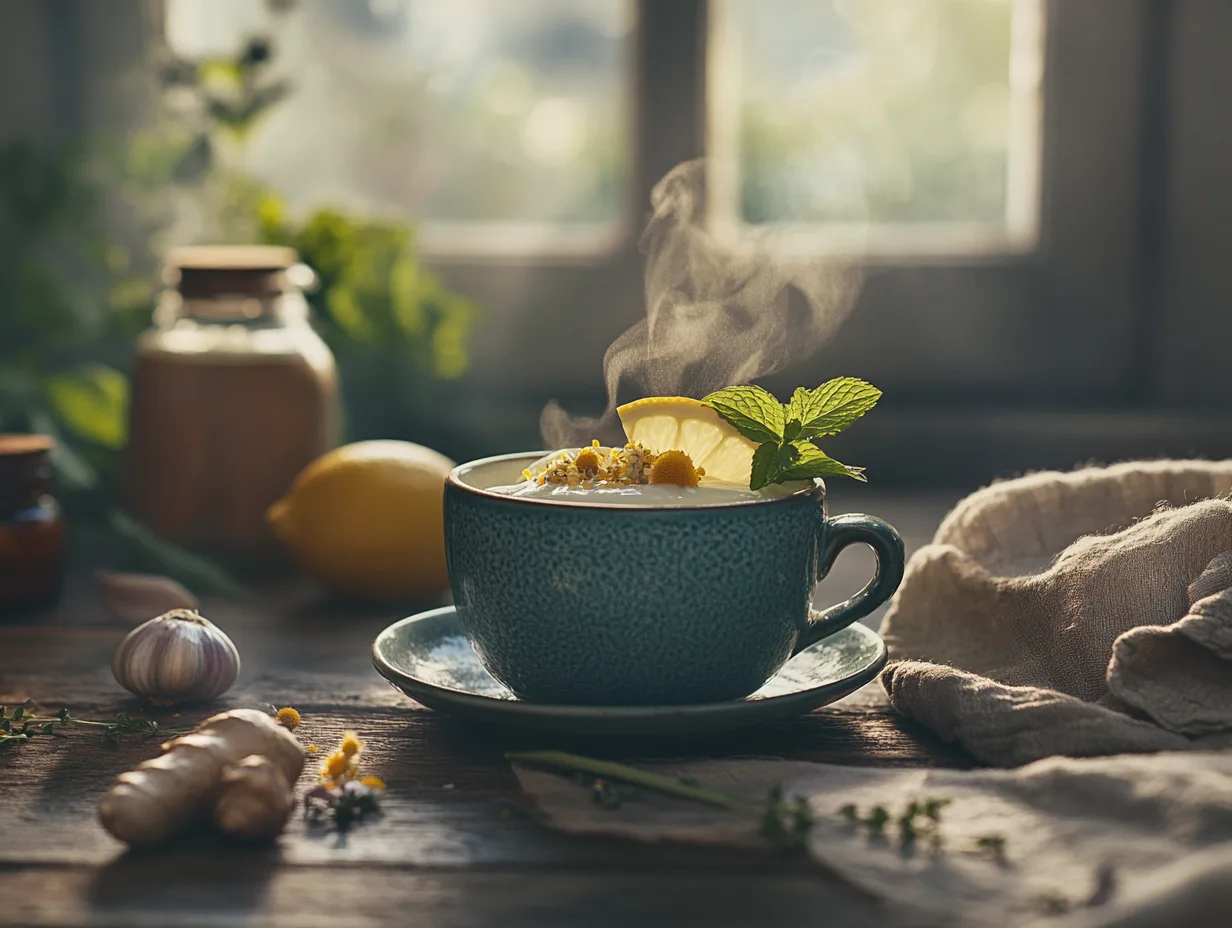Natural Solutions That Work
Experiencing diverticulitis pain can be both debilitating and frustrating, often prompting a search for effective relief strategies beyond conventional medical treatments. While antibiotics and, in severe cases, surgery are standard approaches, many individuals seek natural solutions to alleviate discomfort and promote healing. This comprehensive guide explores the best home remedies for diverticulitis pain, offering safe and effective methods to manage symptoms and enhance your overall well-being. Whether you’re dealing with a flare-up or aiming to prevent future episodes, these natural remedies can be valuable additions to your healthcare routine.
Understanding Diverticulitis Pain
What is Diverticulitis?
Diverticulitis occurs when small pouches, known as diverticula, form in the lining of the colon and become inflamed or infected. These pouches develop due to increased pressure within the colon, often linked to a low-fiber diet. Common symptoms include abdominal pain, fever, and changes in bowel habits. Understanding the nature of diverticulitis pain is crucial for effectively managing and alleviating discomfort.
Causes of Diverticulitis Flare-Ups
Several factors can trigger diverticulitis flare-ups, including:
- Low-Fiber Diets: Insufficient fiber leads to harder stools and increased pressure in the colon.
- Chronic Constipation: Persistent difficulty in passing stools exacerbates colon pressure.
- Sedentary Lifestyle: Lack of physical activity slows down digestion and promotes constipation.
- Age-Related Changes: Aging weakens the colon walls, making diverticula more prone to inflammation.
- Obesity: Excess body weight increases abdominal pressure, contributing to diverticulitis.
- Smoking: Smoking impairs immune function and increases inflammation risk.
- Use of NSAIDs: Regular use of nonsteroidal anti-inflammatory drugs can weaken the colon wall.
By identifying these triggers, you can implement preventive measures and adopt natural remedies to manage diverticulitis pain effectively.
Dietary Adjustments for Pain Relief
Emphasizing a High-Fiber Diet
A high-fiber diet is foundational in preventing and managing diverticulitis pain. Fiber adds bulk to stool, facilitating smoother bowel movements and reducing colon pressure.
Fiber-Rich Foods to Incorporate:
- Whole Grains: Brown rice, oats, barley, and whole-wheat products.
- Fruits: Apples (with skin), pears, berries, and oranges.
- Vegetables: Broccoli, carrots, leafy greens, and Brussels sprouts.
- Legumes: Lentils, chickpeas, black beans, and kidney beans.
Tips for Increasing Fiber Intake:
- Gradual Introduction: Slowly add fiber to your diet to prevent bloating and gas.
- Variety is Key: Incorporate both soluble and insoluble fiber for balanced digestion.
- Stay Hydrated: Drink plenty of water to help fiber move smoothly through your digestive system.
For more detailed meal planning ideas, check out our Diverticulitis Cookbook by Megan Rush, which offers a variety of fiber-rich recipes tailored to support digestive health.
Incorporating Probiotic-Rich Foods
Probiotics help maintain a healthy balance of gut bacteria, which can reduce inflammation and support overall digestive function.
Probiotic-Rich Foods to Include:
- Yogurt: Choose plain, unsweetened varieties with live active cultures.
- Kefir: A fermented milk drink containing a wide range of probiotics.
- Sauerkraut and Kimchi: Fermented vegetables that add beneficial bacteria.
- Tempeh and Miso: Fermented soy products used in various dishes.
Including these foods can enhance your gut microbiome, potentially lowering the risk of diverticulitis flare-ups.
Balancing Protein and Healthy Fats
While fiber is crucial, ensuring adequate intake of protein and healthy fats supports overall health and tissue repair.
Healthy Protein and Fat Sources:
- Lean Proteins: Chicken breast, turkey, fish, and plant-based proteins like tofu and tempeh.
- Healthy Fats: Avocados, olive oil, nuts, and seeds.
A balanced diet ensures you’re not missing essential macronutrients, contributing to a healthier digestive system.
Natural Pain Relief Remedies
Applying Heat Therapy
Heat therapy can effectively reduce abdominal pain and muscle spasms associated with diverticulitis.
How to Use Heat Therapy:
- Heating Pads: Place a heating pad on your lower abdomen for 15-20 minutes at a time.
- Warm Compresses: Use a warm cloth or compress to soothe sore areas.
Heat helps relax muscles and improve blood flow, providing immediate relief from pain.
Herbal Teas and Supplements
Certain herbs and supplements have anti-inflammatory and soothing properties that can aid in diverticulitis pain relief.
Beneficial Herbal Teas:
- Chamomile Tea: Known for its calming effects and ability to reduce inflammation.
- Peppermint Tea: Helps relax the digestive tract and alleviate spasms.
- Ginger Tea: Possesses anti-inflammatory properties and can reduce nausea.
Supplements to Consider:
- Probiotics: Enhance gut health by balancing beneficial bacteria.
- Omega-3 Fatty Acids: Reduce inflammation and support overall health.
Always consult with a healthcare provider before adding supplements to your regimen.
Essential Oils for Pain Management
Essential oils can provide natural pain relief and relaxation.
Effective Essential Oils:
- Lavender Oil: Promotes relaxation and reduces stress-related pain.
- Peppermint Oil: Alleviates muscle tension and eases abdominal discomfort.
- Eucalyptus Oil: Offers anti-inflammatory benefits and promotes a sense of well-being.
How to Use Essential Oils:
- Diffusion: Use a diffuser to inhale the calming scents.
- Topical Application: Dilute essential oils with a carrier oil and apply to the abdomen or temples.
Lifestyle Modifications for Long-Term Relief
Regular Physical Activity
Engaging in consistent, low-impact exercise can promote digestive health and prevent diverticulitis flare-ups.
Recommended Exercises:
- Walking: Enhances bowel function and reduces colon pressure.
- Swimming: Offers full-body benefits without straining the abdomen.
- Yoga and Pilates: Improve flexibility, core strength, and reduce stress.
Exercise Tips:
- Consistency Over Intensity: Regular, moderate exercise is more beneficial than occasional, intense workouts.
- Incorporate Movement into Daily Routine: Take the stairs, walk during breaks, or engage in active hobbies.
- Listen to Your Body: Avoid overexertion, especially if experiencing digestive discomfort.
Maintaining a Healthy Weight
Excess body weight, particularly around the abdomen, increases pressure on the colon, contributing to diverticulitis flare-ups.
Weight Management Strategies:
- Balanced Diet: Focus on nutrient-dense, high-fiber foods while moderating calorie intake.
- Portion Control: Be mindful of serving sizes to avoid overeating.
- Regular Monitoring: Keep track of your weight and make adjustments as needed.
For guidance on portion sizes and balanced eating, explore our Mastering Portion Control article, which provides strategies for maintaining balanced servings and preventing overeating.
Stress Management Techniques
Managing stress is essential for preventing diverticulitis flare-ups, as stress can exacerbate inflammation and disrupt normal digestive processes.
Effective Stress Management Techniques:
- Meditation: Regular practice can calm the mind and reduce stress hormones.
- Deep Breathing Exercises: Techniques like diaphragmatic breathing promote relaxation.
- Progressive Muscle Relaxation: Systematically tensing and relaxing muscle groups to release physical tension.
- Mindfulness Practices: Focus on the present moment to reduce anxiety and improve mental clarity.
Incorporating these techniques into your daily routine can significantly lower stress levels and support digestive health.
Preventive Measures to Avoid Future Flare-Ups
Identifying and Avoiding Triggers
Recognizing personal triggers is key to preventing diverticulitis flare-ups.
Common Triggers to Avoid:
- High-Fat Foods: Can increase inflammation and irritate the colon.
- Processed Foods: Often low in fiber and high in unhealthy fats and sugars.
- Alcohol and Caffeine: May irritate the digestive tract and exacerbate symptoms.
- Smoking: Impairs immune function and increases inflammation risk.
How to Identify Triggers:
- Keep a Food Diary: Track what you eat and note any symptoms that follow.
- Elimination Diet: Remove suspected trigger foods and gradually reintroduce them to identify specific irritants.
- Consult a Dietitian: Professional guidance can help tailor a diet plan that avoids personal triggers while maintaining nutritional balance.
Regular Medical Check-Ups
Maintaining regular appointments with your healthcare provider ensures that any potential issues are addressed promptly.
Benefits of Regular Check-Ups:
- Early Detection of Complications: Prevents severe flare-ups and related health issues.
- Personalized Treatment Plans: Adjustments to diet, exercise, or medication based on your current health status.
- Monitoring Progress: Ensures that preventive measures are effective and sustainable.
Hydration and Bowel Regularity
Staying well-hydrated is crucial for maintaining bowel regularity and preventing diverticulitis flare-ups.
Hydration Tips:
- Drink Plenty of Water: Aim for at least eight 8-ounce glasses daily.
- Limit Dehydrating Beverages: Reduce intake of alcohol and caffeinated drinks.
- Incorporate Hydrating Foods: Fruits like watermelon and vegetables with high water content.
Promoting Bowel Regularity:
- Consistent Eating Schedule: Regular meal times help regulate digestion.
- Adequate Fiber Intake: As previously discussed, fiber supports smooth bowel movements.
- Physical Activity: Encourages regular bowel function and prevents constipation.
Utilizing Resources and Support Systems
Consulting Healthcare Professionals
Collaborating with your healthcare team is vital for effective diverticulitis management and prevention.
Healthcare Collaboration Tips:
- Discuss Dietary Needs: Share your fiber intake and any food intolerances with your dietitian or doctor.
- Monitor Medication Use: Inform your healthcare provider about any medications you’re taking that could impact your digestive health.
- Seek Specialist Advice: In complex cases, consulting a gastroenterologist can provide specialized care and recommendations.
Joining Support Groups
Connecting with others who have diverticulitis can provide emotional support and practical advice.
Benefits of Support Groups:
- Emotional Support: Reduce feelings of isolation by connecting with peers.
- Information Sharing: Learn about new prevention techniques and treatments.
- Motivation: Stay committed to your prevention plan with the encouragement of others.
Educational Resources
Educating yourself about diverticulitis is a powerful tool for prevention. Reliable sources include:
- Mayo Clinic: Comprehensive guides on diverticulitis causes, symptoms, and treatments.
- Cleveland Clinic: Articles and resources on managing and preventing diverticulitis.
- Harvard Health Publishing: Research-based information on digestive health and dietary recommendations.
Summary of Best Home Remedies for Diverticulitis Pain
Effectively managing and preventing diverticulitis pain involves a combination of dietary adjustments, lifestyle modifications, and natural remedies. Here are the key home remedies to incorporate into your routine:
- High-Fiber Diet: Increase intake of whole grains, fruits, vegetables, and legumes to support smooth digestion and reduce colon pressure.
- Probiotic-Rich Foods: Incorporate yogurt, kefir, sauerkraut, and kimchi to maintain a healthy gut microbiome.
- Heat Therapy: Use heating pads or warm compresses to alleviate abdominal pain and muscle spasms.
- Herbal Teas: Drink chamomile, peppermint, or ginger tea to soothe the digestive tract and reduce inflammation.
- Essential Oils: Utilize lavender, peppermint, or eucalyptus oils through diffusion or topical application for natural pain relief.
- Regular Exercise: Engage in low-impact activities like walking, swimming, or yoga to promote bowel health and reduce stress.
- Stress Management: Practice meditation, deep breathing, and progressive muscle relaxation to lower stress levels and decrease inflammation.
- Adequate Hydration: Drink plenty of water to aid fiber in promoting regular bowel movements and prevent constipation.
- Avoid Trigger Foods: Identify and eliminate high-fat, processed, and irritating foods from your diet to minimize flare-ups.
- Consistent Meal Planning: Plan your meals and snacks to maintain a balanced, fiber-rich diet and reduce stress around eating.
By integrating these home remedies into your daily life, you can significantly reduce diverticulitis pain and prevent future flare-ups, leading to a healthier and more comfortable digestive system.


Leave a Reply